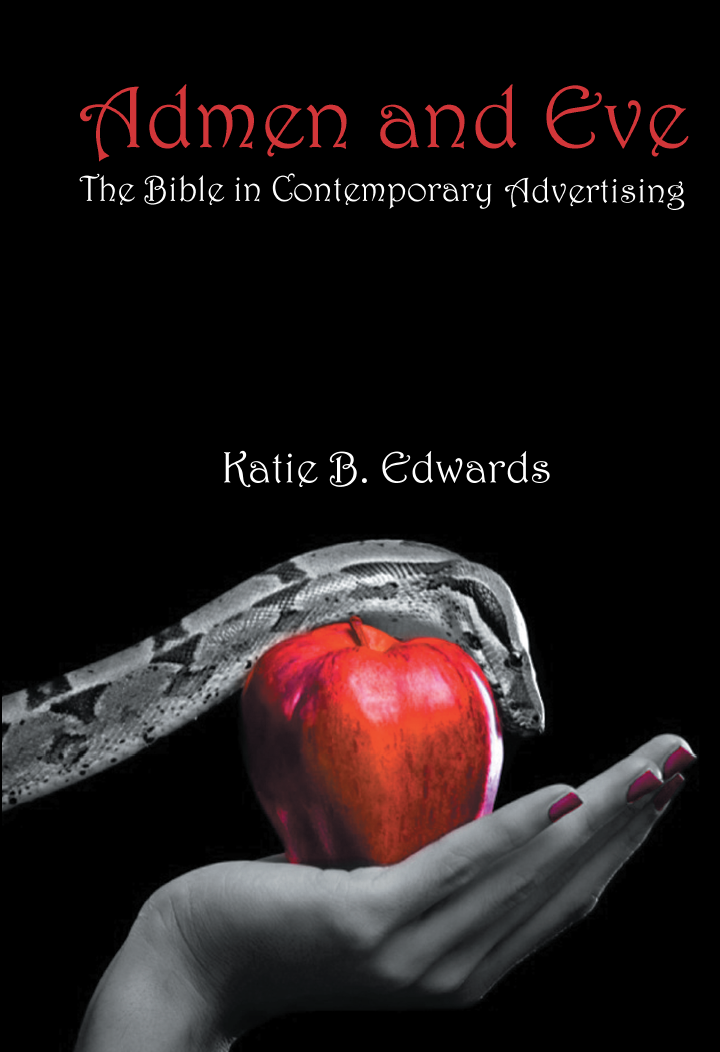Admen and Eve: The Bible in Contemporary Advertising
£50.00
This remarkable new book, the first of its kind, is an analysis of a phenomenon that biblical scholars have scarcely taken notice of, much less studied critically —the use of the Bible in advertising.
This remarkable new book, the first of its kind, is an analysis of a phenomenon that biblical scholars have scarcely taken notice of, much less studied critically —the use of the Bible in advertising. Focussing on the figure of Eve, Admen and Eve shows how she has become the ultimate postfeminist icon of female sexual and consumer power, promoting self-regarding individual choice over collective political action for today’s ‘I’m not a feminist but …’ generation.
Contemporary advertising, Edwards shows, deploys a collage of images simultaneously reflecting and dictating the ideals and ideologies that inform much of Western culture. Exploiting the cultural mythology that surrounds Eve, advertisers constantly recycle images of this biblical figure because she is easily recognizable by the target consumer. In so doing, they are shaping how women and men see each other and themselves and how they treat each other and themselves, persuading them to become their culturally dictated dream through the products they consume.
Eve in advertising is then a revealing example of how the Bible functions today. But Admen and Eve is not a value-free and apolitical analysis; it is an incitement to the exposure and subversion of today’s dominant cultural attitudes to gender roles.
Additional information
| table of contents | Introduction What Has Postfeminism Got to Do with It? The Aims of the Book 1. Genesis 2–3: The Creation of an Icon It Is Not Good That the Man Should Be Alone I Will Make a Helper Fit for Him Because You Have Obeyed the Voice of your Wife And She Also Gave Some to her Husband Who Was with Her 2. The Never-changing Face of Eve: Representations of Eve in Nineteenth-Century Fin-de-siècle Art and Twentieth-Century Fin-de-siècle Advertising 3. Bad Girls Sell Well: The Commodification of Eve in Postfeminist Consumerism The Serpent Beguiled Me and I Ate I Will Make for Him a Helper Fit for Him It Is Not Good That the Man Should Be Alone 4. Forbidden Fruit Tastes the Sweetest: Eve Imagery in Advertising for the Twilight and Desperate Housewives Franchises |
|---|---|
| author | |
| authors | |
| editors | |
| isbn | |
| list price (paperback) | |
| page extent | |
| publication | |
| publication date | |
| series | |
| table of contenta | |
| version |


H. Morse, Society for Old Testament Study Book List 2013. –
E[dwards] offers an articulate insight into the ways in which contemporary advertisers repeatedly ‘recycle’ motifs of Eve … In doing so she provides a refreshing analysis of how biblical stories continue to have a significant impact upon modern cultural attitudes … E. opens up the field of biblical reception criticism to include an array of images from popular culture, and successfully challenges the common argument that much popular culture is too ‘frivolous’ or ‘insignificant’ to warrant academic attention.
Cynthia M. Baker, Religious Studies Review –
Admen and Eve should find its way onto college library shelves and into undergraduate biblical studies syllabi, there to await more-developed and nuanced book-length studies of its kind (perhaps by the same author?). Once it is there, one may hope that members of the demographic group targeted by such ads as the book discusses will come upon it, reach for it, pluck it, and begin to sharpen the critical chops with which they consume the deceptive fruits of so many advertisers’ labors.